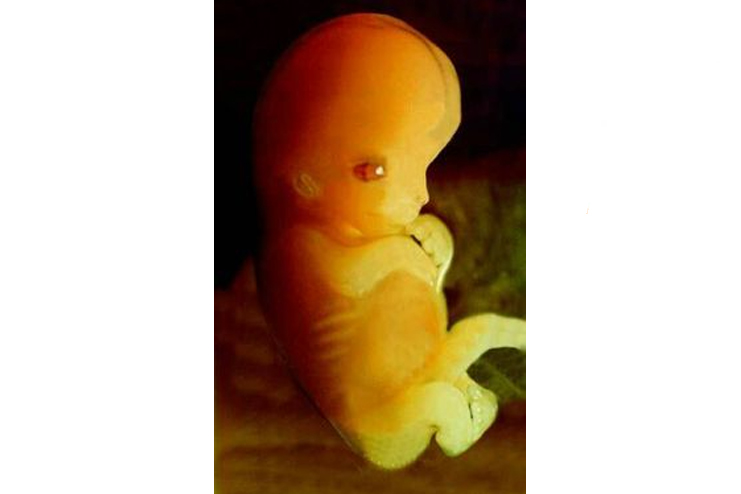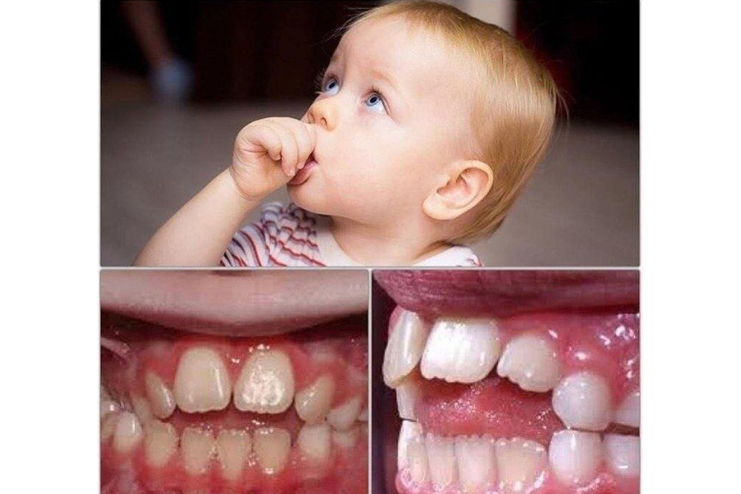Is your baby sucking the thumb? Are you afraid of its side effects? How to stop the baby from thumb sucking? This article helps you to come up with a solution to thumb sucking in babies.
Babies generally suck their thumbs to soothe themselves. Ultrasound pictures show that some babies may start sucking their thumb in the mother’s womb. Studies suggest that thumb sucking may cause permanent damage if continued beyond the age of 2-3 years.
This article covers the factors that make babies suck their thumbs. It discusses the side effects of thumb sucking and the easy ways to stop thumb sucking.
Easy Ways to Stop Thumb Sucking in Babies

Here are the 13 ways to stop thumb sucking in babies and younger children.
Ways to Stop Thumb Sucking in Babies:
Here are the 6 easy ways that help you stop your baby from the chewing thumb.
1. Find the Reason:
Parents should observe when their baby is sucking thumb.
- If the baby sucks thumb to fall asleep/calm down, it can be replaced over the period of time.
- If the baby sucks thumb to feel secure, it is the responsibility of the parents to offer comfort and make them feel secure.
1. Distraction
Observe when your baby starts sucking the thumb. This can help you to distract your baby from thumb sucking by your words or spending time with your baby. If you are busy then make your baby to get engaged in playing with his/her favorite toy.
3. Pacifiers
Use pacifiers as alternatives to thumb sucking. Offer the pacifier to your baby at specific times during the day and gradually reduce the timing until they did not require it anymore.
4. Gloves/Teething Mittens & clothes
Put on finger gloves/teething mittens or wrap a clean cloth around the thumb which helps your baby to stop thumb sucking slowly.
5. Lemon Slice
Instead of trying desperate attempts to stop thumb sucking in your babies, apply little vinegar or give your baby lemon slice which is an easy diversion for your baby to avoid thumb in the mouth.
6. Offer Alternatives to Sucking:
Learn the baby alternatives that can offer comfort like massaging, singing, playing animated games.
7. Chewelry
Chewelry is chew-able jewelry, which can be given to the babies to replace thumb sucking. It is non-toxic and safe to use.
Ways to Stop Thumb Sucking In Children (above 4 Years)

If your thumb sucking child 4 years, the following are the best ways to put an end to thumb sucking.
1. Do not yell
Don’t yell at your child. Teach your child that thumb sucking is a bad habit. Talk to your child about the bad consequences of thumb sucking. The following are the main things to speak to your child
- Germs: Teach your children that when they put their finger in the mouth, saliva in the mouth spreads germs through the thumb.
- Teeth Misalignment: Sucking pushes the teeth forward, which makes your child look funny.
- Teasing: Other kids may tease your child or may avoid your child from playing with them due to saliva contaminated fingers.
- Speech Defect: Make your child aware of the fact that thumb sucking can make speech difficult.
2. Keep Your Child Busy
It’s not easy to stop thumb sucking in children over 4 years, it takes from days to months.
Keep your child busy with games, puzzles and craft making. Limit your child from watching TV as some child might unconsciously place their fingers in the mouth.
3. Offer Rewards:
Praise and offer rewards when your child goes without thumb sucking. Offer their favorite snacks as reward. Whenever your child goes a whole day without sucking, offer extra rewards.
4. Videos
Show your kid small videos related to thumb sucking. It might help them to understand the bad consequences of thumb sucking and get rid of it.
5. Consult Dentist
If you are worried about the improper teeth alignment caused by thumb sucking, then consult a dentist.
If your child is still a toddler, and he did not stop thumb sucking even after implementing the 6 ways mentioned above. Then wait with patience and let them stop the habit on their own.
If your child is over five years, then consult a pediatrician or pediatric dentist. Hearing a warning from the doctor may help your kid to stop thumb sucking.
6. Consult Occupational Therapist:
Since the thumb sucking is a sensory-related problem, consult an occupational therapist (OT). OT may prefer the best diet to calm down the sensory pleasure- thumb sucking.
These 13 ways will help you to stop thumb sucking in babies and children.
Why Do Babies Suck Their Thumbs?

Here are the few reasons for the babies to suck their thumbs
1. Natural Reflexes: Babies have natural rooting and sucking reflexes, which makes them suck their thumbs. This natural reflex facilitates successful breastfeeding.
2. Soothing & Comfort: Most of the time, Babies suck their thumbs to soothe themselves. Instead of crying out, babies use thumb sucking to adapt to their surroundings. It is a natural self-comforting behavior in babies, which makes them feel happy, secure and go to sleep. Many babies suck their thumbs when they are tired, bored or in need of comfort.
3. Hunger: If there is a delay in feeding, then your baby may suck his/her thumb
Whether your baby started thumb sucking in the utero or habituated to it a few weeks after birth, it’s normal unless it is carried to the schooling.
Types of Thumb Sucking:
Active and Passive Thumb Sucking:
Depending on the way that babies suck their thumbs, there exists two types of thumb sucking
1) Passive Thumb Sucking: In passive thumb sucking, babies gently rest their thumb inside the mouth without any movement.
2) Active Thumb Sucking: In active thumb sucking, babies impose pressure on the roof of the mouth. If your baby is an active thumb sucker, you can hear a popping sound, when he removes his thumb from the mouth.
How Long Does Thumb Sucking Last?
Thumb sucking is strong usually till 6 months and gradually decreases and that habit ends before 1 year in some child. But, some children may continue thumb sucking beyond the age of 2 years.
According to Pediatricians, Dentists and Psychologists, parents need not worry about thumb sucking up to 5 years. If it continues beyond that age it will lead to dental and speech problems.
Is Thumb Sucking Bad for Babies?
Thumb is usually harmless for children with no permanent teeth.
The passive thumb sucking is normal up to the age of 4 years and does not harm teeth alignment. Active thumb sucking can change the alignment of primary baby teeth.
Side Effects of Thumb Sucking:

It was mentioned in the Journal of Pediatrics that thumb sucking is associated with many oral problems. If the habit of thumb sucking is prolonged beyond the age of 4 years, then it might result in the following effects.
1. Open Bite
Open bite is a misalignment between the teeth of two dental arches. It requires orthodontic treatment in the future.
2. Over Bite :
Overbite is a scenario where the upper teeth cover the lower teeth when your child’s mouth is closed. It may affect the shape of the face and smile.
3. Skin Problems:
If your baby suck his/her thumb regularly, then the skin may become red, dry, cracked, or chopped.
Children who suck their thumbs over the years may experience severe allergies. Because of continuous exposure to saliva, the skin on the thumb may become vulnerable to injuries. In some cases, it may crack or bleed.
If the skin problem becomes so severe, then cover the infected finger with a medical finger glove. If the baby has developed rash on the thumb, then apply mild body lotion to keep it moist.
4. Speech Defects
Thumb-sucking affects the development of teeth, jaws, and palate. It can also change how your child speaks. It obstructs your child from pronouncing hard consonant sounds.
5. Social Issues:
A child who has prolonged the habit of sucking the thumb beyond 6- 8 years may be taunted by the peers for being habituated to the immature thumb sucking. Thumb sucking is a spontaneous and subconscious response to stress and anxiety in many children.
This habit can be easily eliminated under the proper guidance and instructions of the parents.
For some children, thumb sucking is very difficult to stop. In those cases, don’t scold or never put pressure on them, which might delay the process.







































